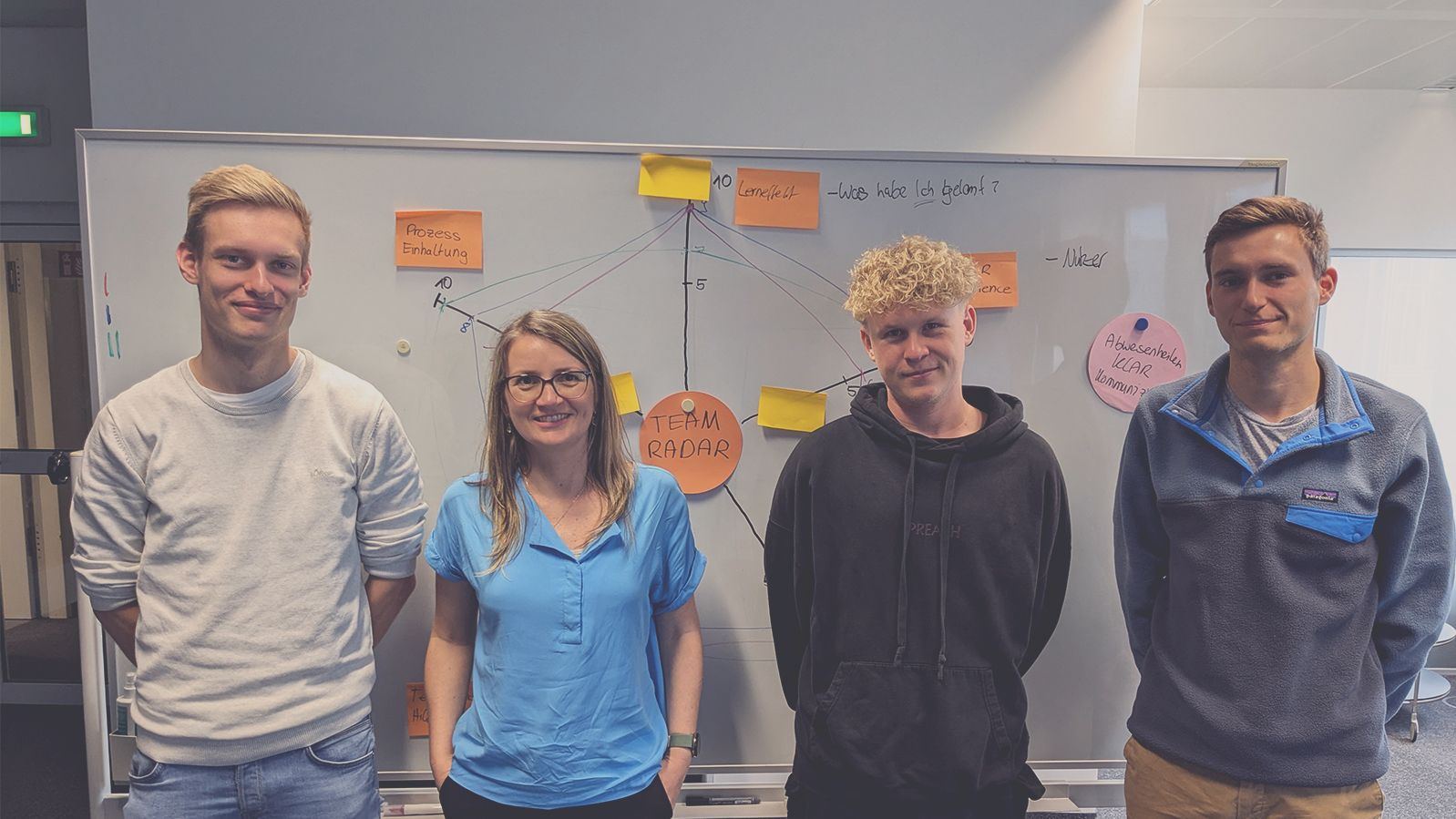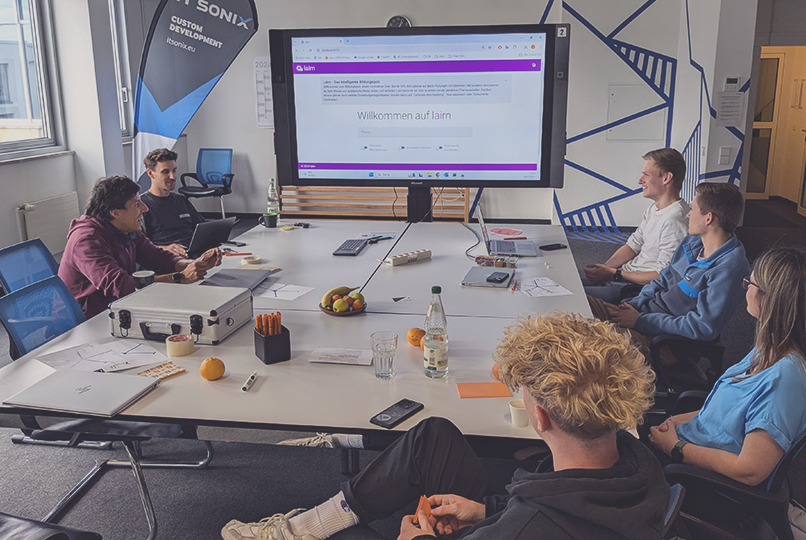
The second edition of our Master's module "Agile Development of Application Systems" at Martin Luther University Halle-Wittenberg recently ended with great success. Our tried-and-tested Xperten duo Dr. Danny Hucke and Marcus Nerger once again guided the students through the world of agile software development.
The event kicked off on April 18 with a series of online lectures that skillfully interwove theory and practice. Our Xperten team placed particular emphasis on teaching the basics of Scrum and agile project management in a lively way. By using interactive tools and integrating practical reports, we succeeded in making the digital meetings dynamic.
The highlights of the module were the face-to-face days in our offices. Here, the participants were able to put what they had learned directly into practice. They worked on the further development of the "lairn" tool created the previous year, an AI-supported quiz generator for exam preparation. They slipped into various Scrum roles and experienced first-hand how agile processes work in practice.
Julian (Business Informatics student, MLU):
What surprised me was that we got into the project without any major teething problems and were able to work well together as a group straight away. This was partly due to the fact that we were optimally prepared for the practical task by the lecturers and that working in a Scrum team naturally requires teamwork in order to function. I now have a much better understanding of what it means to program a real software project and, above all, I learned how important feedback loops are.
The enthusiasm of the students was particularly impressive. They showed a high level of initiative and quickly grew into their roles. The clear communication of expectations right from the start encouraged them to take responsibility and created a working atmosphere that was very different from conventional university projects.
Paul (Business Informatics student, MLU):
For me, the biggest difference to other seminars was that you don't just memorize content here that won't be used later. Thanks to the practical part, you really understand things and are therefore able to apply them in your professional life. Admittedly, I had hardly any understanding of what it means to work in an agile way beforehand and was surprised at how much fun it can be. I have also learned a lot about technology and now feel better equipped for the world of work.
The special nature of the module was also reflected in the assessment approach: 75% of the grade was awarded for how the students organized and carried out the Scrum event assigned to them (e.g. a planning or a retrospective), while the end product played a subordinate role. This emphasized the importance of agile methods and motivated the students to fully engage in the Scrum process.

From common business cases to exciting practical reports - our experts provided the participants with an agile toolkit that they could then apply directly in a realistic working environment.
Michaelle (Research Assistant, MLU):
I was looking for a suitable opportunity for further training in an agile context. As a rule, you don't really come into contact with this in a university environment. Above all, the feedback from the lecturers always helped me to find my way around the Scrum role. Our team was motivated throughout and overall, the practical days gave me a good insight into the agile way of working. I can only recommend the course to anyone who wants to learn more about Scrum.
Thanks to the university alliance Halle-Jena-Leipzig, we were able to welcome students from two universities, which led to a lively exchange. This diversity further enriched the discussions and project results.
Jonas (Business Informatics student, UL):
Before the seminar, my interest was more technical. In addition to my studies, I also work as a PO and got to know the Scrum process in a completely different way here. I didn't realize beforehand how much influence the agile way of working with its methods can actually have on the success of a project when applied correctly. The relaxed and informal atmosphere in the company in particular also had an impact on our way of working. As a result, we have also tried things that we might not have dared to do in a different context and have surpassed ourselves - both individually and as a team.
We look back with pride on this successful continuation of our cooperation with Martin Luther University Halle-Wittenberg. The positive experiences and constructive feedback encourage us to continue offering this module and develop it further.
We have accepted and mastered the challenge of repeating a success. We are already looking forward to accompanying motivated students on their journey into the world of agile development again next year.